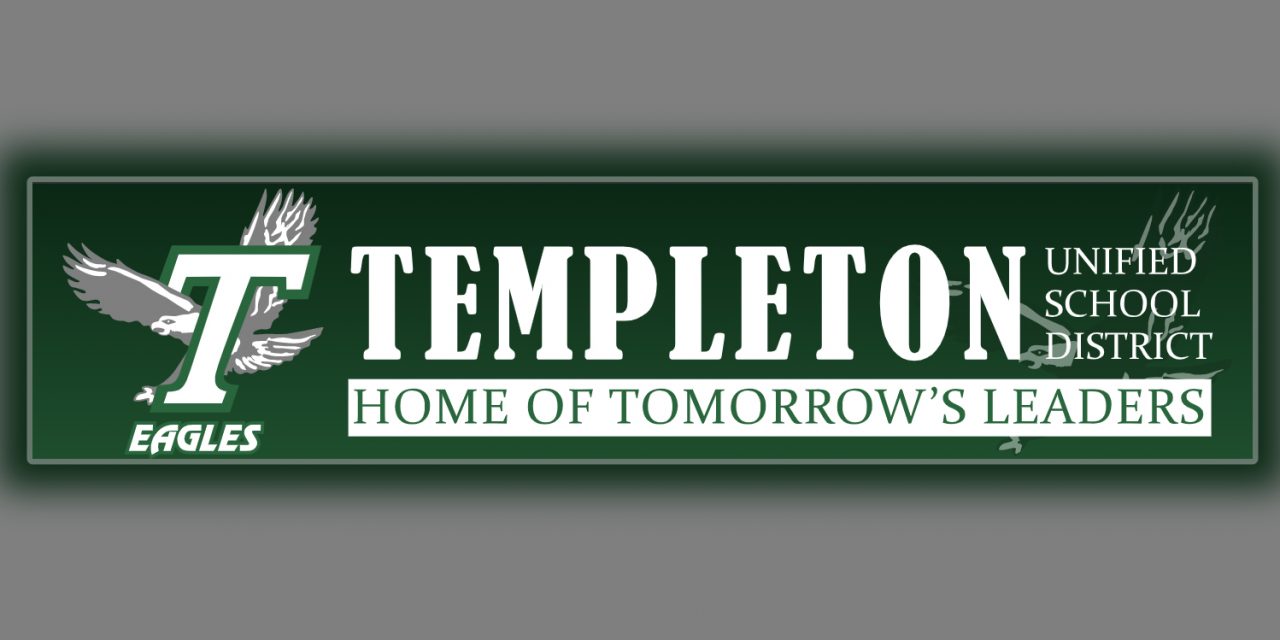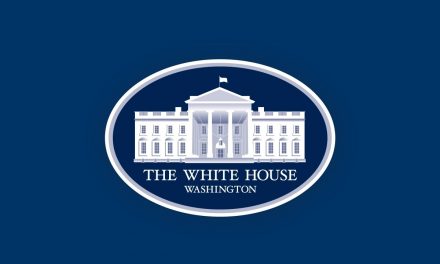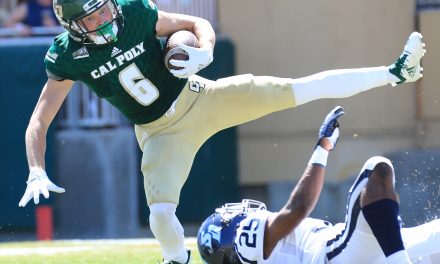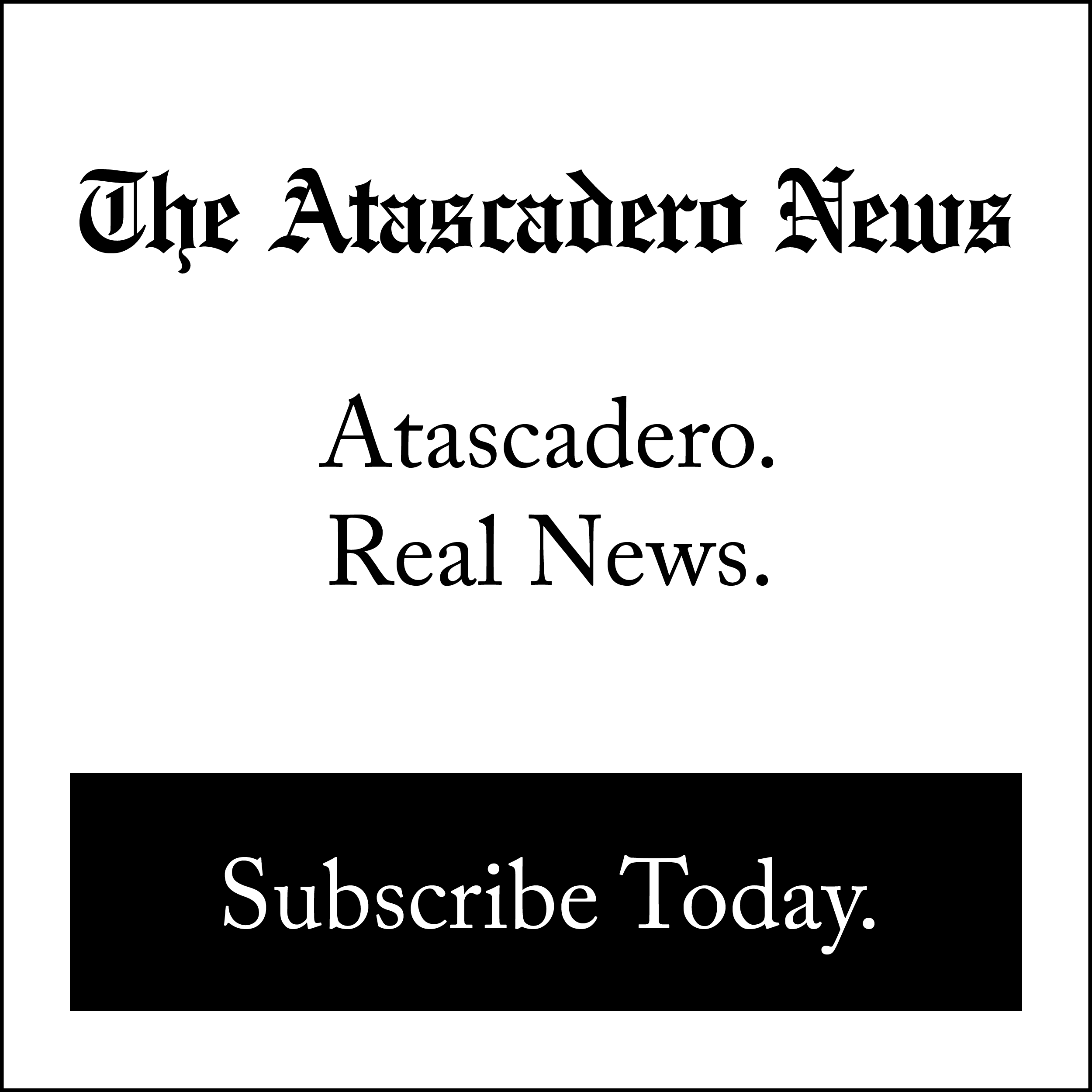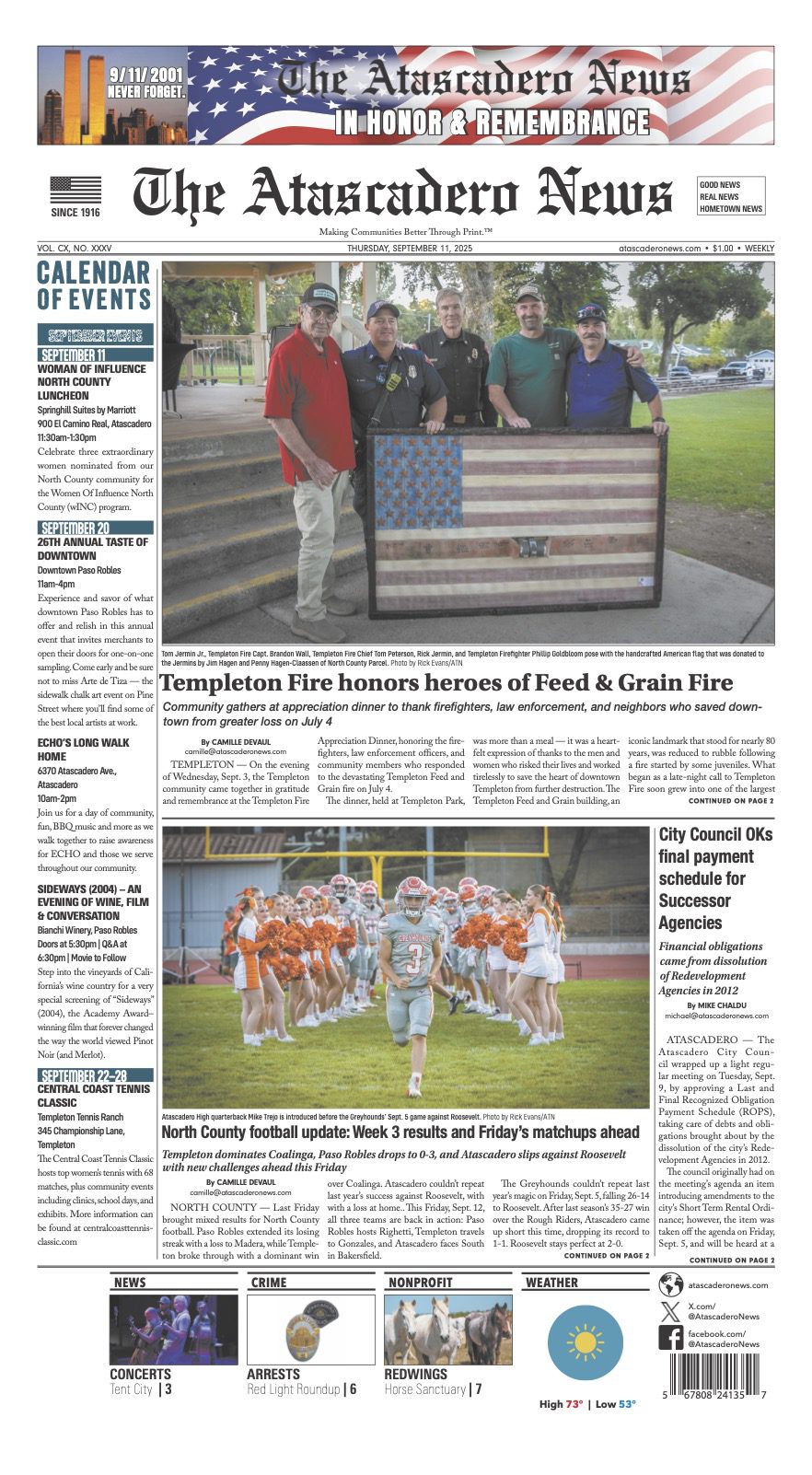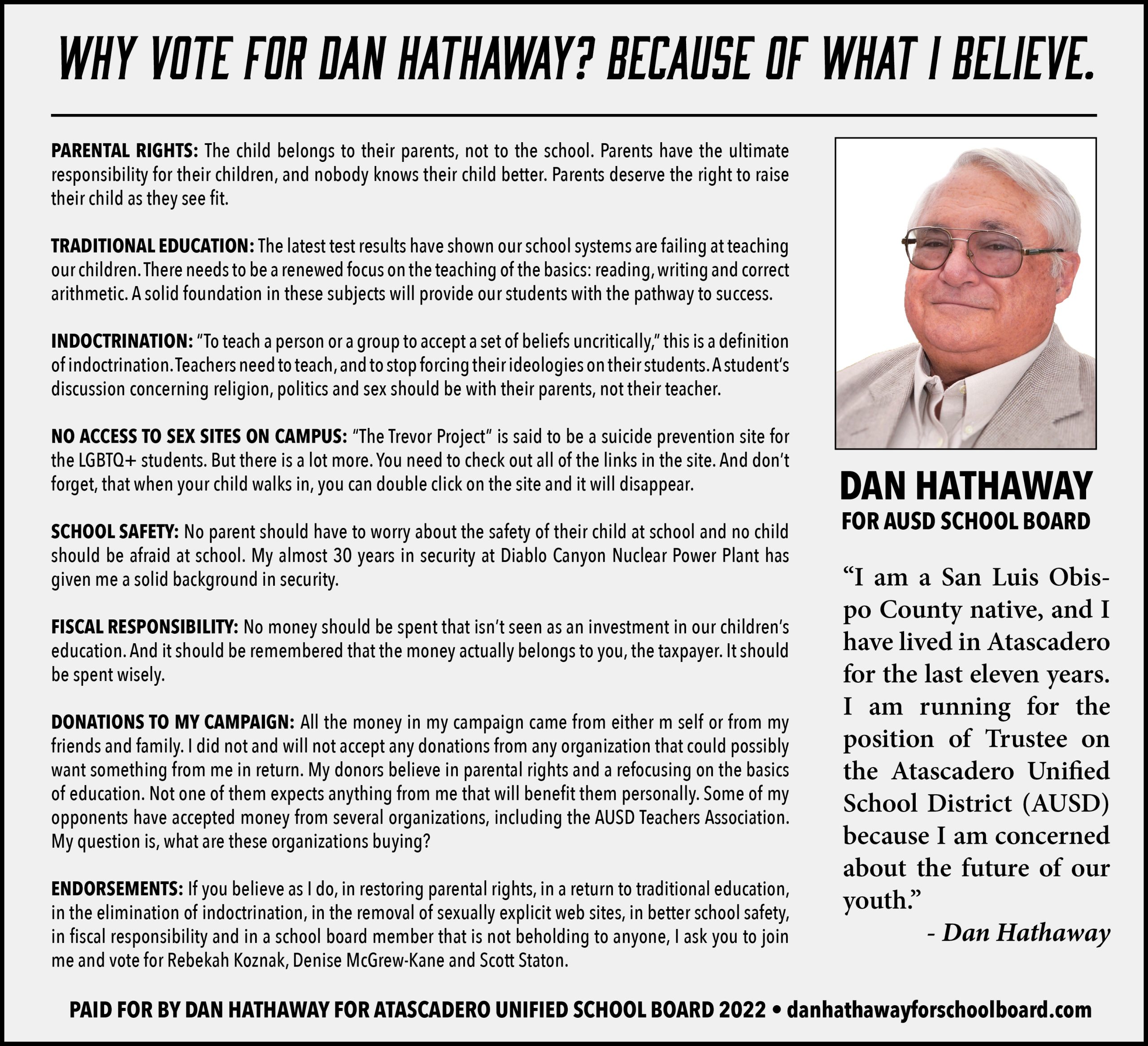Parents ask the district to state their stance on vaccine mandates
TEMPLETON — The Templeton Unified School District (TUSD) held a regularly scheduled meeting on Tuesday, Oct. 28, at 6:15 p.m. The meeting had a late start due to the closed session beforehand, where it was reported there was no determination on the closed session topics.
Trustee Matt Vierra was absent from the meeting due to family matters. The meeting opened with Trustee Nelson Yamagata holding a moment of silence for Dave Harper, the gym teacher who passed away.
The first item of business was the acceptance of donations for the school, which was approved.
Next, the virtual meeting audio was put on mute for several minutes; when the meeting returned, the Board was approving the adoption of Resolution #R22-03 Determining Sufficiency of Instructional Materials.
The Heritage Tree Foundation presentation was presented on the Valley Oaks, which is what is seen most often along Main Street in Templeton. These trees are three years old and have been grown to focus on developing their taproots and superficial roots to create stability. There are 250 trees ready to be planted, and teachers have taken the role of planting and caring for these trees during the year, with the Heritage Foundation assisting with maintenance during the summer. The motion to go ahead with the planting was approved 5-0.
Public comment was heard from two parents who were concerned with the looming vaccine mandate for children. Jennifer Grinager, the chapter chair for Moms for Liberty, discussed the data results from the statewide sit-out, which had about 20 percent dis- enrollment, and suggested it would be even higher as many parents either didn’t know or were unable to pull their children from school that day. The parents encouraged the Board to put the item on a future agenda so the school’s direction could be openly discussed and known by the parents.
The consent agenda was approved 5-0.
Several instruction updates were made, including a math achievement roadmap and the school opening and safety plan for 2021-22.
A short presentation was made on the California Healthy Kids Survey, which is administered every other year in the spring. The results from the survey will be available this time next year. The survey asks a variety of questions to assess how comfortable and safe the kids feel at school, what drug and alcohol use is present among the students, and to inquire about school connectedness. The survey is administered to grades 5, 7, 9, 11, with different questions for different ages based on maturity.
The class size report was presented, showing that overall the average is a lower class size than typical, which was by design. The idea was to use COVID funds to buy down class size and give students a better student-to-teacher ratio, ensuring more frequent personal interactions during classes. Smaller class sizes is always a desirable aspect of the classroom, but more so after a year of remote learning so teachers can accurately assess and work with each student where they are at.
The Board discussed the proposed new job description and salary schedule for a guidance technician. The item was presented with the hope of finding counselors who may need the hours or be working on getting final credentials and be able to utilize their skills at the school while they do so. Trustee Yamagata expressed his interest in approving the item, “The need for counseling is at a premium. If we can use covid funds… we know it’s not always going to be there, but if for now, it fits our purposes… I’m very much in favor of it.”
The motion was approved 5-0 in favor of the position.
The annual report of developer fees showed that the last year was a bit below the average. These payments come from residential and commercial construction in the district. The revenue was around $230,000, when it typically is closer to $250,000. This decrease is understandable due to decline in development through the shutdowns all year. It was discussed to increase the developer fees to account for inflation and rising costs. There is a statutory max to the fees that are allowed to be levied per state. The last time the Board moved their fee to match the maximum was in 2011, and currently, the fees are noticeably lower than the max fee. It was discussed to look to all options before changes to be sure that the funds will be there for the future and begin next steps in terms of research to look at increasing the developer fees. The report was approved 5-0.
The next meeting is a special board meeting to be held at 4 p.m. on Friday, Oct. 29, to discuss the expenditure plan for a federal grant that needs to be approved before the deadline.
The next regular meeting of the Board will be on Nov. 18 at 6:15 p.m.

